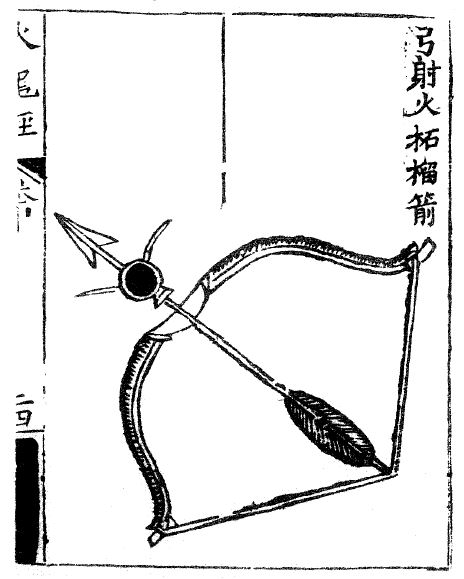|
Tang Fu
Tang Fu (唐福) was a Chinese inventor, military engineer, and naval captain who lived during the Song dynasty. Although he did not invent the fire arrow, an early form of gunpowder rocket, he is credited as having invented "a rocket of a new style having a head of iron." According to William Alexander Parsons Martin William Alexander Parsons Martin (April 10, 1827 – December 18, 1916), also known as Dīng Wěiliáng Lydia H. Liu, ''The Clash of Empires: The invention of China in modern world making'', Harvard University Press, 2004, pp. 113–139 (), was an ..., this invention represents a "transition from signal rockets to firearms, properly so called." This happened in 1000 AD, while Tang Fu served as a naval captain. His name is mentioned in the Chinese texts, the '' History of Song'' or ''Songshi'' and the ''Ko Chieh Ching Yuan'' or ''The Mirror of Research''. In the ''History of Song'', he is said to have "presented his fire arrows, fire balls and grenades." References ... [...More Info...] [...Related Items...] OR: [Wikipedia] [Google] [Baidu] |
Song Dynasty
The Song dynasty (; ; 960–1279) was an imperial dynasty of China that began in 960 and lasted until 1279. The dynasty was founded by Emperor Taizu of Song following his usurpation of the throne of the Later Zhou. The Song conquered the rest of the Ten Kingdoms, ending the Five Dynasties and Ten Kingdoms period. The Song often came into conflict with the contemporaneous Liao, Western Xia and Jin dynasties in northern China. After retreating to southern China, the Song was eventually conquered by the Mongol-led Yuan dynasty. The dynasty is divided into two periods: Northern Song and Southern Song. During the Northern Song (; 960–1127), the capital was in the northern city of Bianjing (now Kaifeng) and the dynasty controlled most of what is now Eastern China. The Southern Song (; 1127–1279) refers to the period after the Song lost control of its northern half to the Jurchen-led Jin dynasty in the Jin–Song Wars. At that time, the Song court retreated south of the ... [...More Info...] [...Related Items...] OR: [Wikipedia] [Google] [Baidu] |
Fire Arrow
Fire arrows were one of the earliest forms of weaponized gunpowder, being used from the 9th century onward. Not to be confused with earlier incendiary arrow projectiles, the fire arrow was a gunpowder weapon which receives its name from the translated Chinese term ''huǒjiàn'' (火箭), which literally means fire arrow. In China a 'fire arrow' referred to a gunpowder projectile consisting of a bag of incendiary gunpowder attached to the shaft of an arrow. Fire arrows are the predecessors of fire lances, the first firearm. Later rockets utilizing gunpowder were used to provide arrows with propulsive force and the term ''fire arrow'' became synonymous with rockets in the Chinese language. In other languages such as Sanskrit 'fire arrow' (''agni astra'') underwent a different semantic shift and became synonymous with 'cannon'. Design Although the fire arrow is most commonly associated with its rocket mechanism, it originally consisted of a pouch of gunpowder attached to an arrow. ... [...More Info...] [...Related Items...] OR: [Wikipedia] [Google] [Baidu] |
William Alexander Parsons Martin
William Alexander Parsons Martin (April 10, 1827 – December 18, 1916), also known as Dīng Wěiliáng Lydia H. Liu, ''The Clash of Empires: The invention of China in modern world making'', Harvard University Press, 2004, pp. 113–139 (), was an American Presbyterian missionary to China and translator, famous for having translated a number of important Western treatises into Chinese, such as Henry Wheaton's ''Elements of International Law''. Biography Martin was born in Livonia, Indiana. He graduated from Indiana University in 1846 and then studied theology at the Presbyterian seminary, New Albany, Indiana. In 1850 Martin arrived in Ningbo, Zhejiang, China, where he worked for the next ten years. Martin served as interpreter for the United States minister William B. Reed, in negotiating the treaty of Treaty of Tientsin in 1858 with China, and in 1859 traveled with his successor, John Elliot Ward, to Beijing and to Edo, Japan. From 1863 till 1868, he worked at Beijing, often ... [...More Info...] [...Related Items...] OR: [Wikipedia] [Google] [Baidu] |

